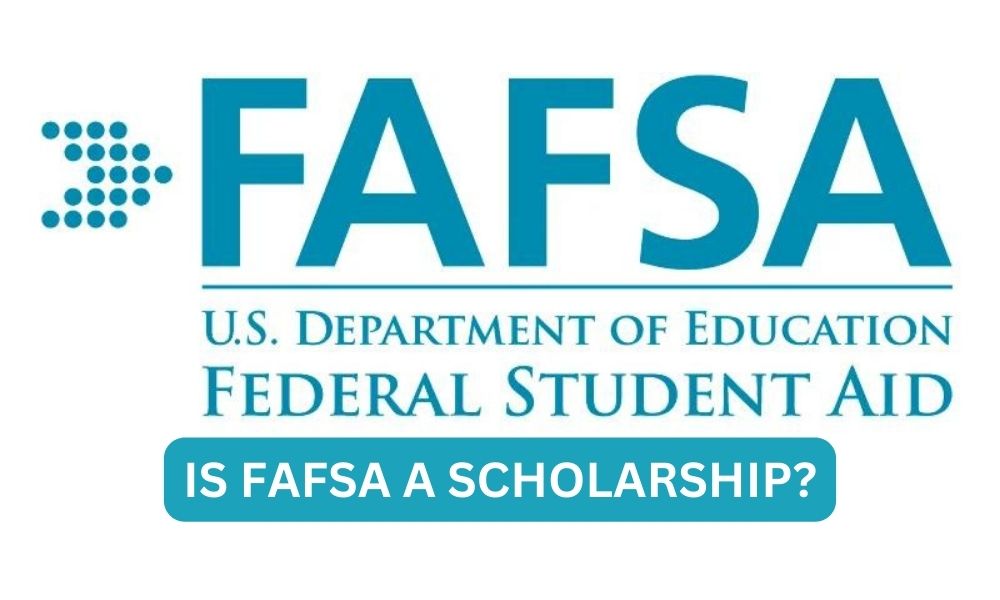When it comes to financing higher education, students and their families often turn to various sources of financial aid to help cover the costs. One of the most well-known and widely used forms of financial aid in the United States is the Free Application for Federal Student Aid (FAFSA). However, there is often confusion surrounding whether FAFSA itself is a scholarship. In this article, we will explore the nature of FAFSA, its purpose, and how it differs from scholarships.
Contents
Understanding FAFSA
FAFSA is a federal program administered by the U.S. Department of Education. It serves as an application for various types of financial aid, including grants, work-study programs, and federal student loans. The primary goal of FAFSA is to determine a student’s eligibility for need-based financial aid.
When students and their families complete the FAFSA application, they provide information about their income, assets, and other relevant factors. This information is then used to calculate the Expected Family Contribution (EFC), which is the amount the family is expected to contribute towards the student’s education expenses. The EFC is a crucial factor in determining the student’s eligibility for need-based aid.
Distinguishing Scholarships from FAFSA
While FAFSA helps determine a student’s eligibility for financial aid, it is important to note that FAFSA itself is not a scholarship. Scholarships, on the other hand, are monetary awards given to students based on various criteria, such as academic achievement, athletic ability, or specific talents.
Read:Can diii schools give athletic scholarships?Unlike scholarships, which are often awarded by individual organizations, institutions, or private donors, FAFSA is a government program that assesses a student’s financial need. Scholarships are typically merit-based or awarded based on specific criteria, while FAFSA focuses on determining a student’s eligibility for need-based aid.
Types of Financial Aid Offered through FAFSA
While FAFSA is not a scholarship, it is a gateway to various types of financial aid that can help students fund their education. Here are some of the types of financial aid offered through FAFSA:
- Grants: Grants are a form of financial aid that does not need to be repaid. They are typically awarded based on financial need. The most well-known federal grant is the Pell Grant, which provides assistance to undergraduate students.
- Work-Study Programs: Work-study programs provide students with part-time employment opportunities to help cover their educational expenses. These programs are often available on-campus or through community service organizations.
- Federal Student Loans: FAFSA also determines a student’s eligibility for federal student loans. Unlike grants, loans need to be repaid with interest. However, federal student loans often offer more favorable terms and lower interest rates compared to private loans.
The Importance of FAFSA
Completing the FAFSA is a crucial step for students seeking financial aid for their education. It opens the door to various forms of assistance that can significantly reduce the financial burden of attending college or university.
Read:Can scholarships be used for living expenses?By providing accurate and timely information through the FAFSA application, students increase their chances of receiving need-based aid, such as grants and work-study opportunities. FAFSA also serves as a prerequisite for many scholarships and institutional aid programs, making it an essential tool for accessing additional financial resources.
Common Misconceptions about FAFSA
Despite its importance, there are several misconceptions surrounding FAFSA that can lead to confusion. Let’s address some of the common misconceptions:
- FAFSA is only for low-income families: While FAFSA does consider a student’s financial need, it is not limited to low-income families. Many factors, such as family size, number of dependents, and other expenses, are taken into account when determining eligibility.
- Completing FAFSA guarantees a scholarship: FAFSA itself does not guarantee a scholarship. It is an application for financial aid, and scholarships are separate awards that have their own application processes and criteria.
- FAFSA is a one-time application: FAFSA needs to be completed annually for each academic year. Financial circumstances can change, and submitting a new FAFSA each year ensures that students receive the most accurate assessment of their eligibility for aid.
Conclusion
While FAFSA is not a scholarship, it plays a crucial role in determining a student’s eligibility for need-based financial aid. By completing the FAFSA application, students open doors to various forms of assistance, including grants, work-study programs, and federal student loans. Scholarships, on the other hand, are separate awards based on specific criteria and are not directly tied to FAFSA.
Read:Do scholarships affect financial aid?Understanding the distinction between FAFSA and scholarships is essential for students and their families as they navigate the complex landscape of financing higher education. By leveraging both FAFSA and scholarships, students can maximize their chances of receiving financial aid and make their educational dreams a reality.









